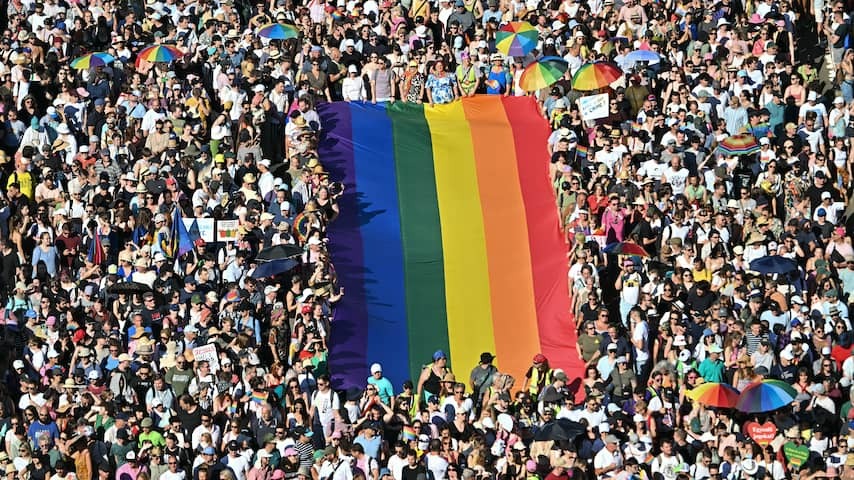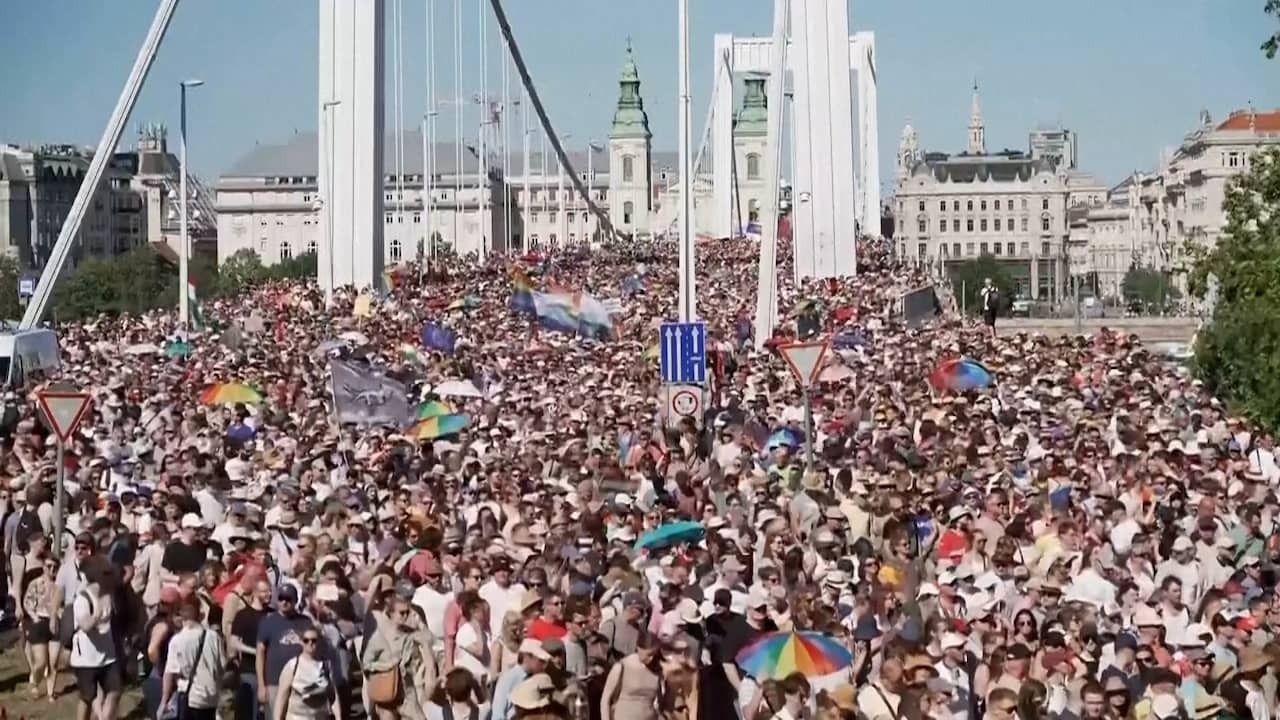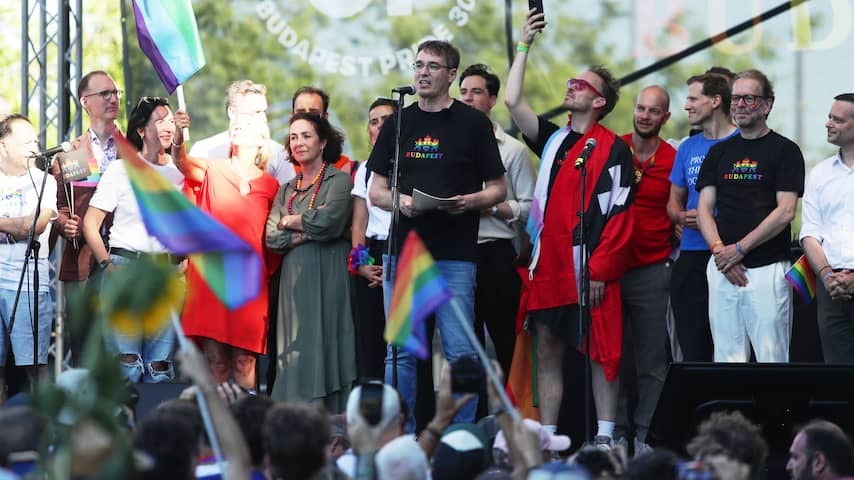
The Pride march in Budapest is coming to an end, according to an ANP reporter on the scene. Tens of thousands of people were present. The event went relatively calmly on Saturday afternoon, despite the government’s ban. The police did not intervene.
Tens of thousands of people, including Dutch officials and politicians, marched through the Hungarian capital to stand up for LGBTQIA+ rights. According to the Hungarian Magyar Hang, there may have been more than one hundred thousand attendees.
Small groups of far-right counter-protesters tried to disrupt the procession, but the police stopped them and led the procession via a different route. The counter-demonstration had been announced in advance.
The celebration of the LGBTQIA+ community was recently banned by the radical right-wing government of Viktor Orbán and the police. According to the government, this was necessary to protect children from exposure to homosexuality.
The mayor of Budapest, Gergely Karácsony, disagreed with the ban and allowed the event to proceed anyway. “Today, Budapest belongs to Europe,” he said on Saturday. “Thank you to everyone who empathizes with us and believes that a free city can also liberate others.”
 0:52
0:52
Tens of thousands of people march in banned Pride march in Budapest
Participants told the ANP that they fear possible consequences, but that they still came to the march because they believe Orbán will otherwise continue to take away freedoms unhindered. For example, protest signs were seen during the march with the text ‘Freedom and love cannot be banned’.
Participants risked a fine of up to 500 euros. This may be imposed retroactively, given that the police are allowed to use facial recognition. The police have also threatened to arrest the organizers of the event.

Halsema joins the march
Orbán’s ban caused angry reactions in other European countries. Dozens of international politicians have come to Budapest, including seventy members of the European Parliament. A group of Dutch MPs from VVD, GroenLinks/PvdA, D66 and Volt, and the Mayor of Amsterdam, Femke Halsema, were also present.
Halsema led the way on Saturday with Karácsony. “I told him that he and the international queer community find Amsterdam on their side in the fight for freedom, for being able to be who you are, for loving who you want. His steadfastness under high pressure is impressive,” said the mayor.

Outgoing State Secretary Mariëlle Paul (Emancipation) was present in Budapest but did not join the march. She found the situation surrounding the pride “too unclear” to be able to join “as a representative of the Dutch cabinet,” she told the NOS and RTL Nieuws earlier. That had to do with the chance that participants would be arrested.
LGBTQIA+ interest group COC regretted that Paul did not join. According to a spokesperson, it would have been “more powerful for both the symbolism and the safety”. On the other hand, COC is pleased with Paul’s other efforts in Budapest. In the Hungarian capital, she spoke with, among others, the organizations behind the pride, the mayor of Budapest and European Commissioner for Equality Hadja Lahbib.